The Hero’s Journey in 60 seconds from Florian Mueck
John Zimmer speaking in Dakar, Senegal
This month one of our trainers, John Zimmer, had the opportunity to work with the United Nations in Dakar, Senegal. It is a privilege to speak to audiences that make make a big impact on the world. Scroll below to see John’s photos from his visit, read his commentary, view the short video (a must watch!) and learn some incredible lessons on speaking to audiences with a different cultural background.
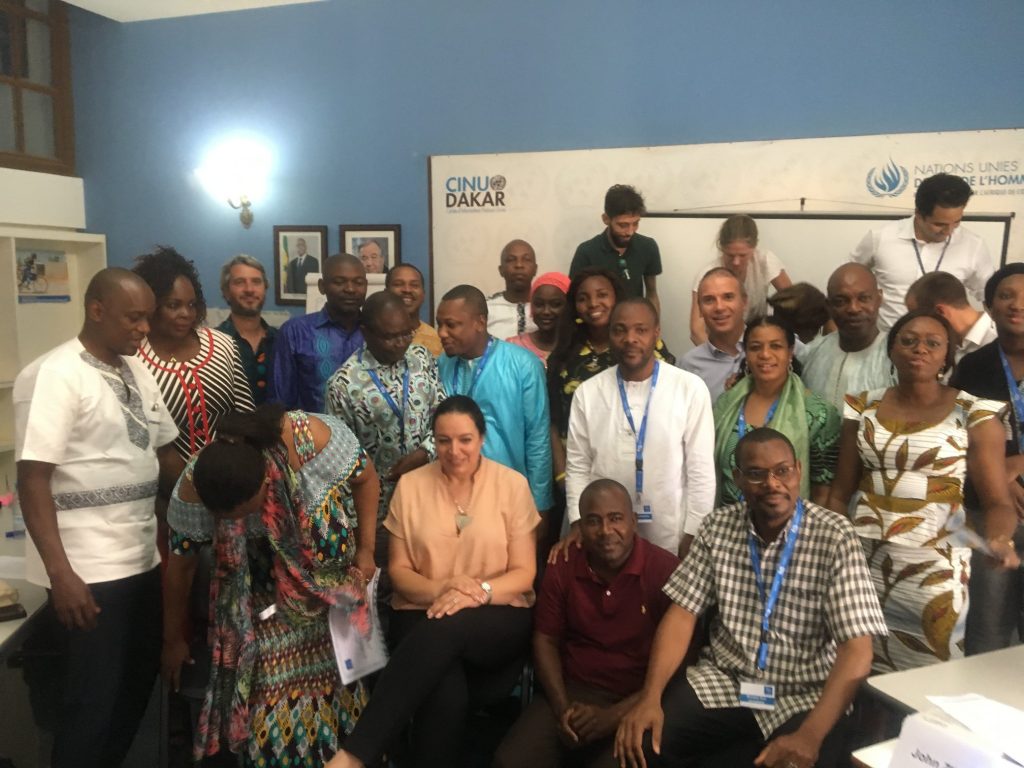
July 13th: A pleasure and a privilege to have worked with dynamic people in the UN who are doing important work, often in difficult circumstances.
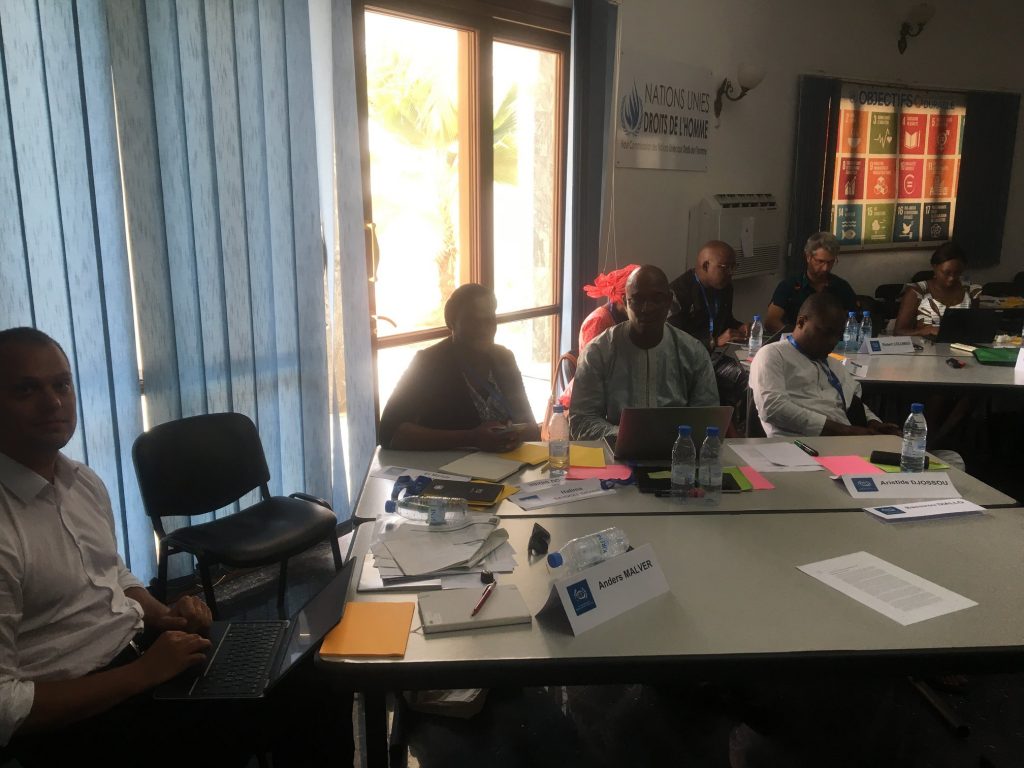
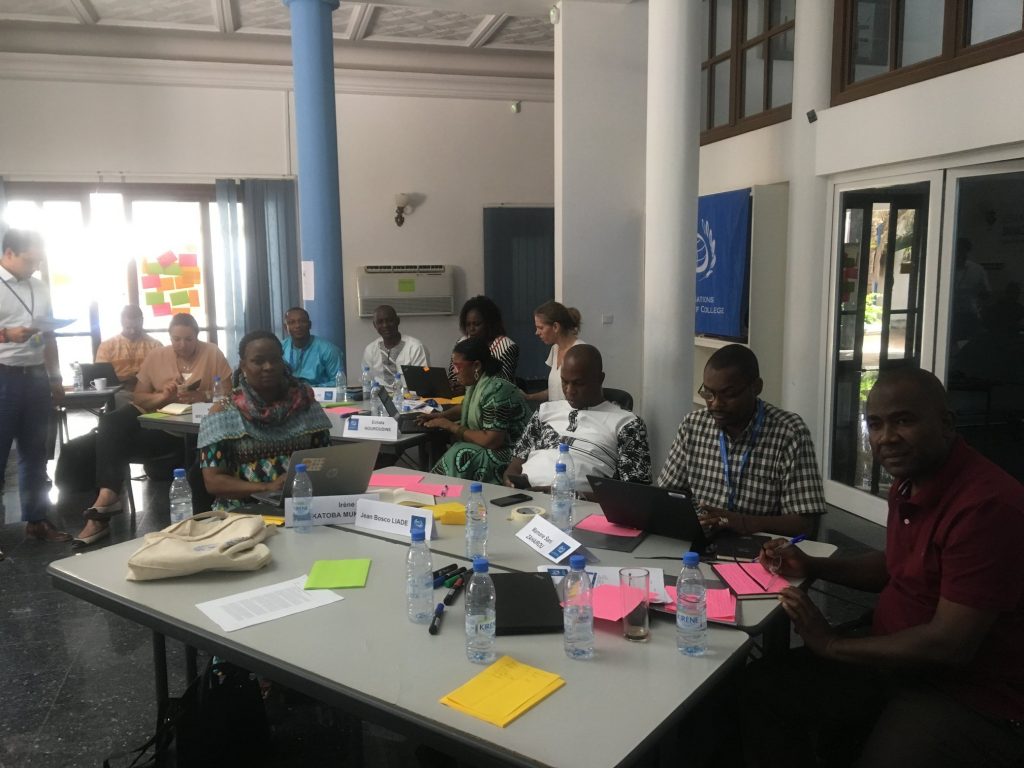
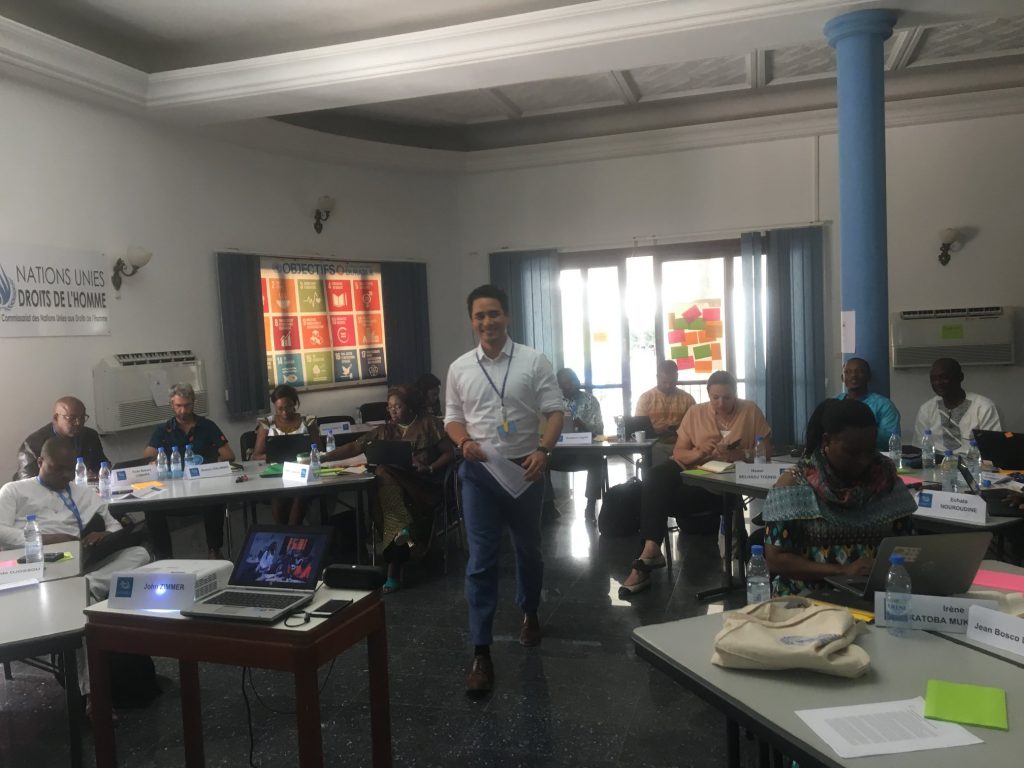
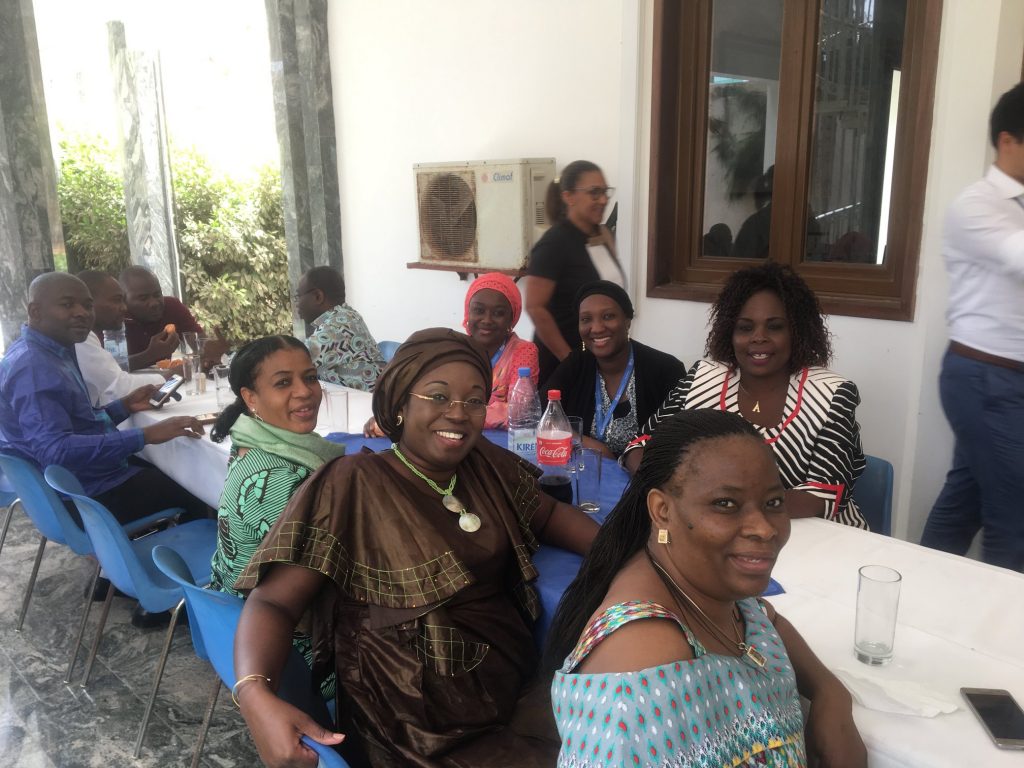
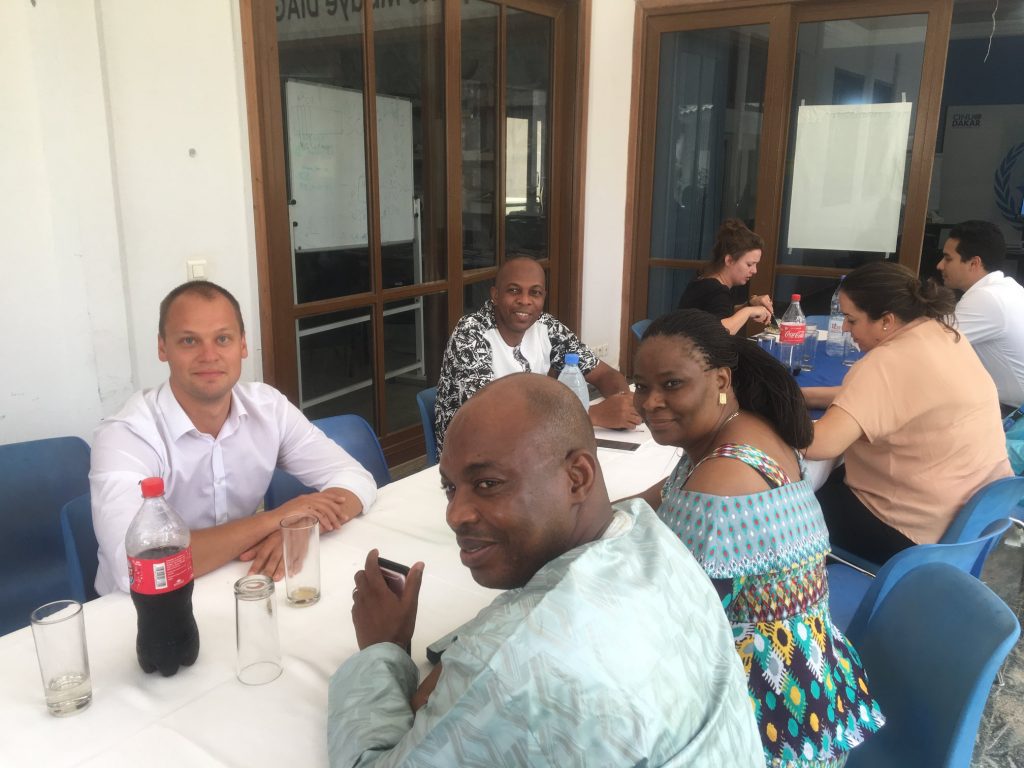
July 13th, evening post: This morning, I visited Île de Gorée, a little island that lies two kilometres off the coast from Dakar. It is beautiful, but it has a tragic past. It is the location from which many slaves were sent to the US, Brazil and elsewhere.
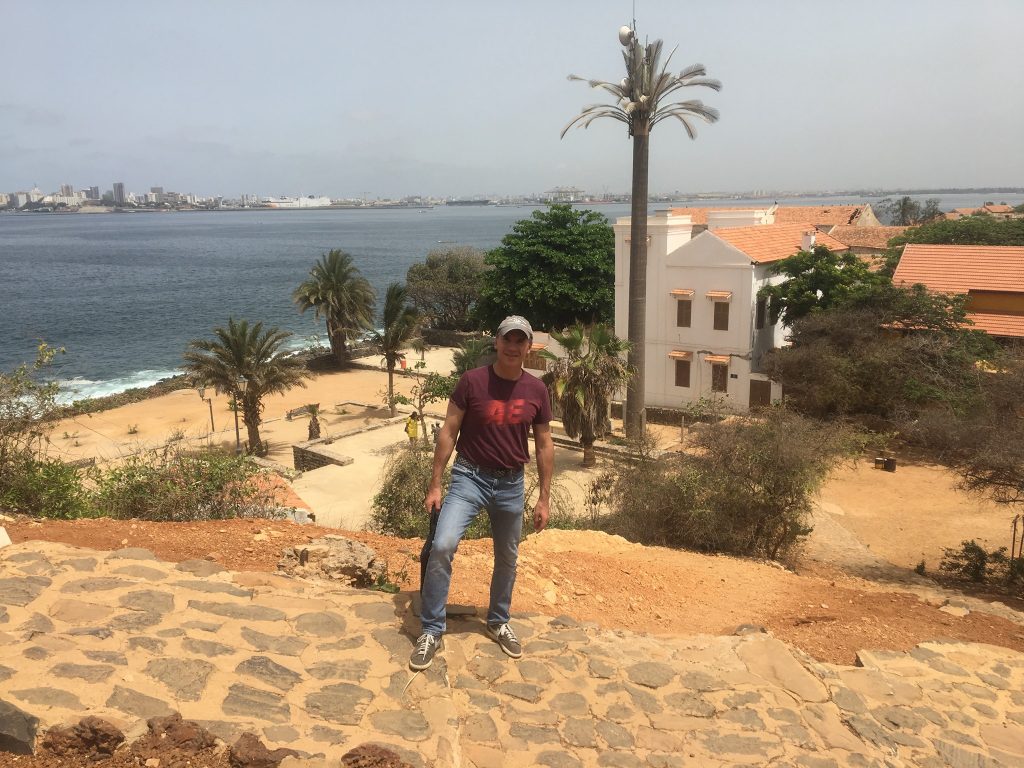
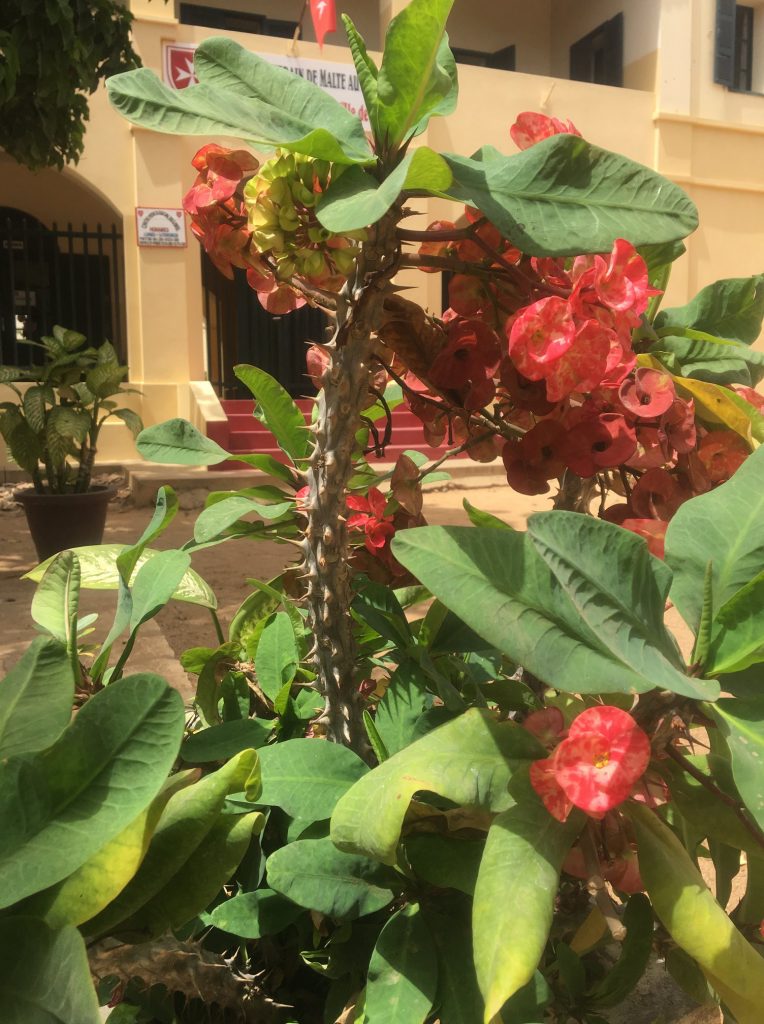


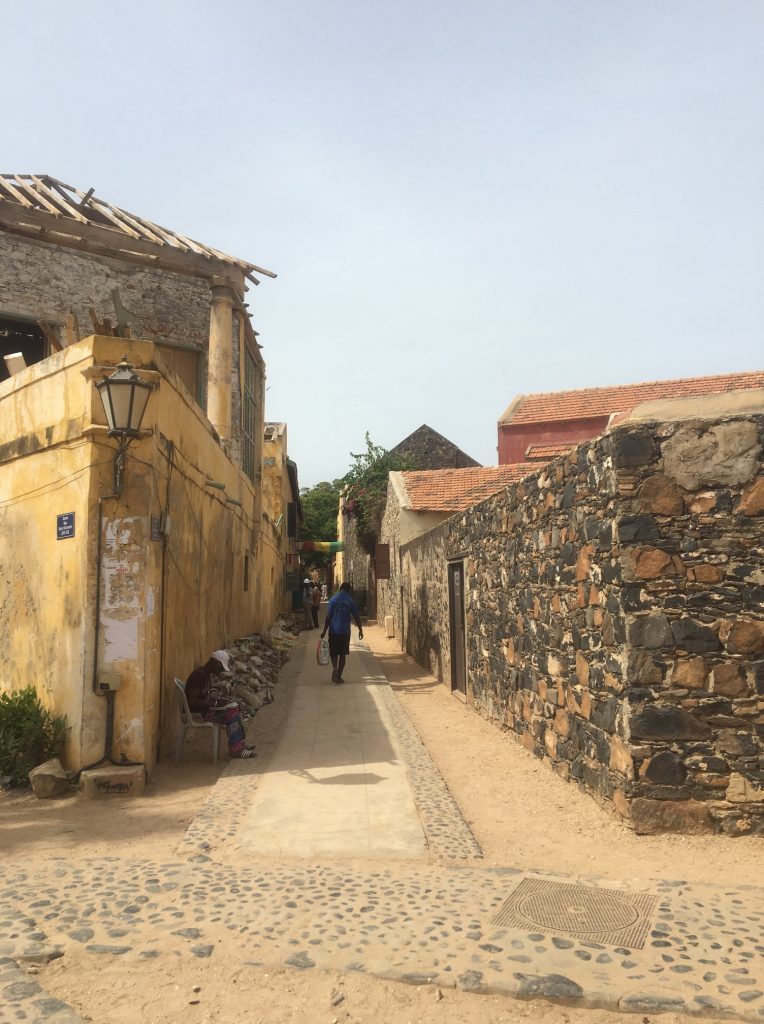
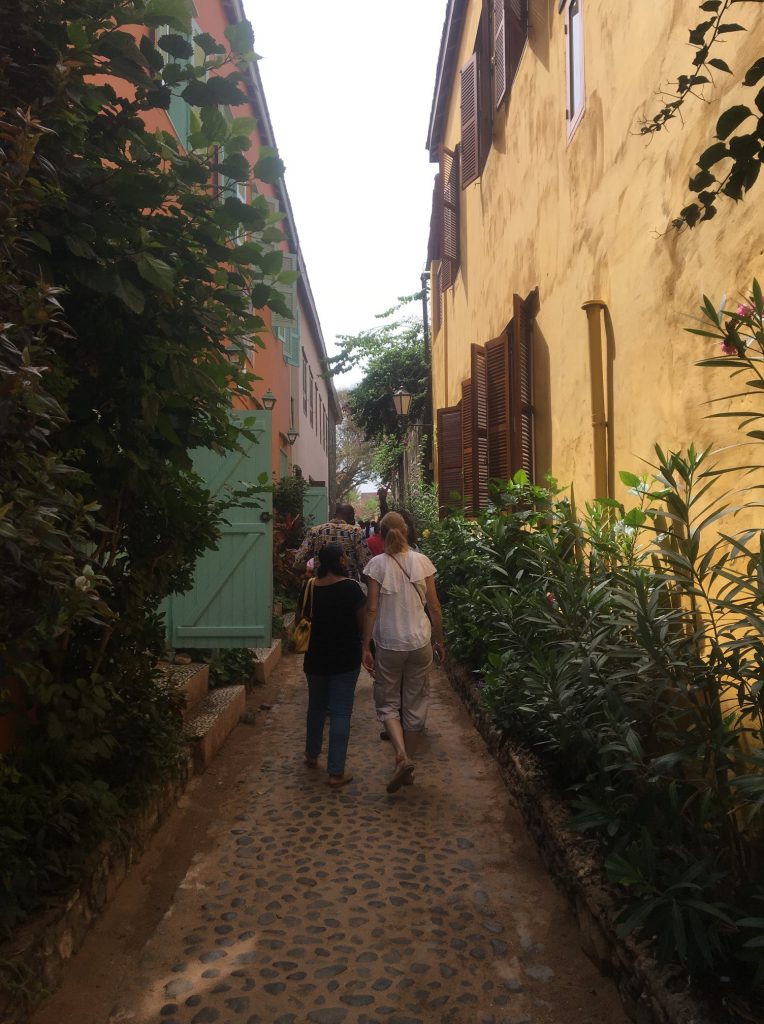

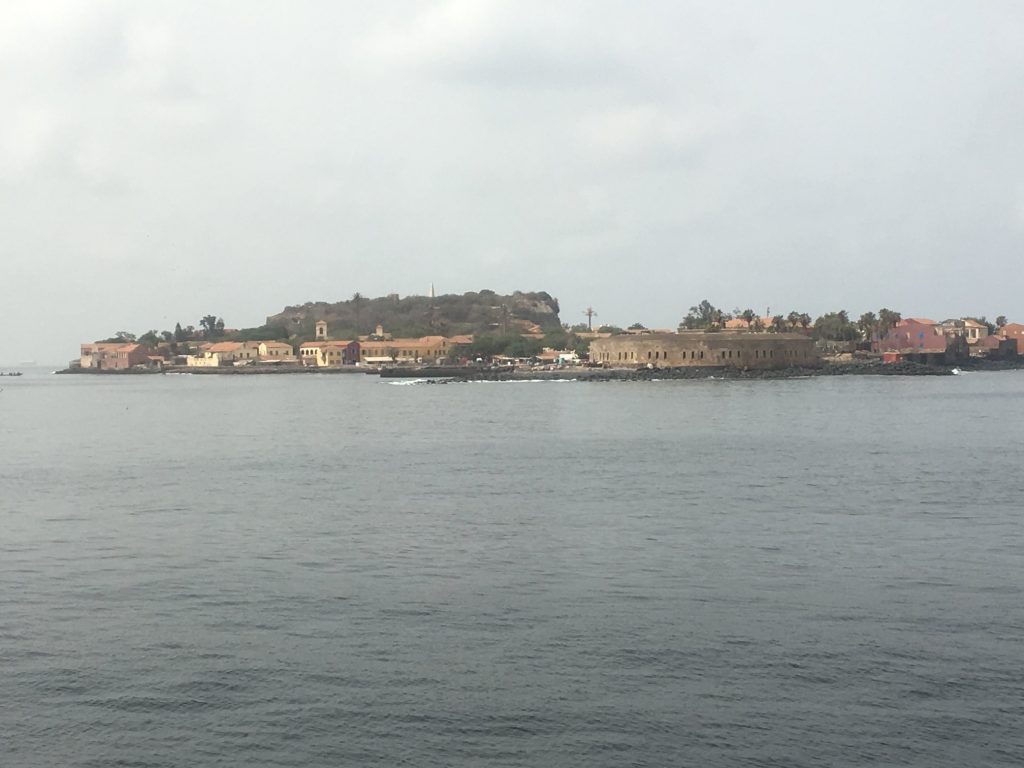
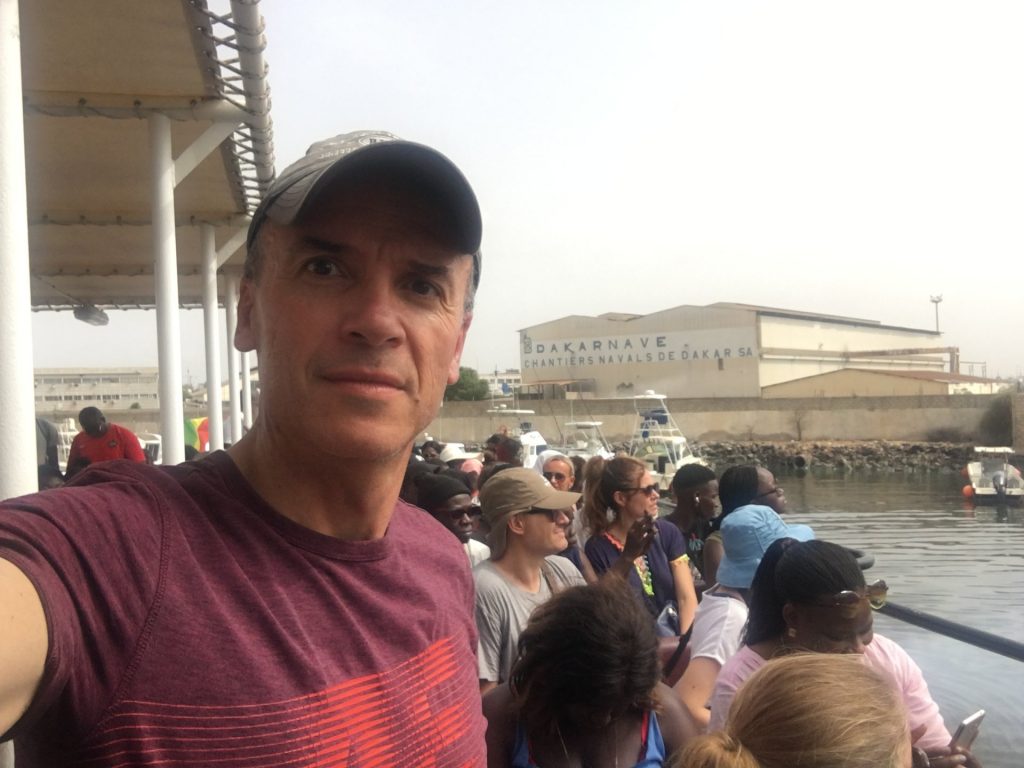
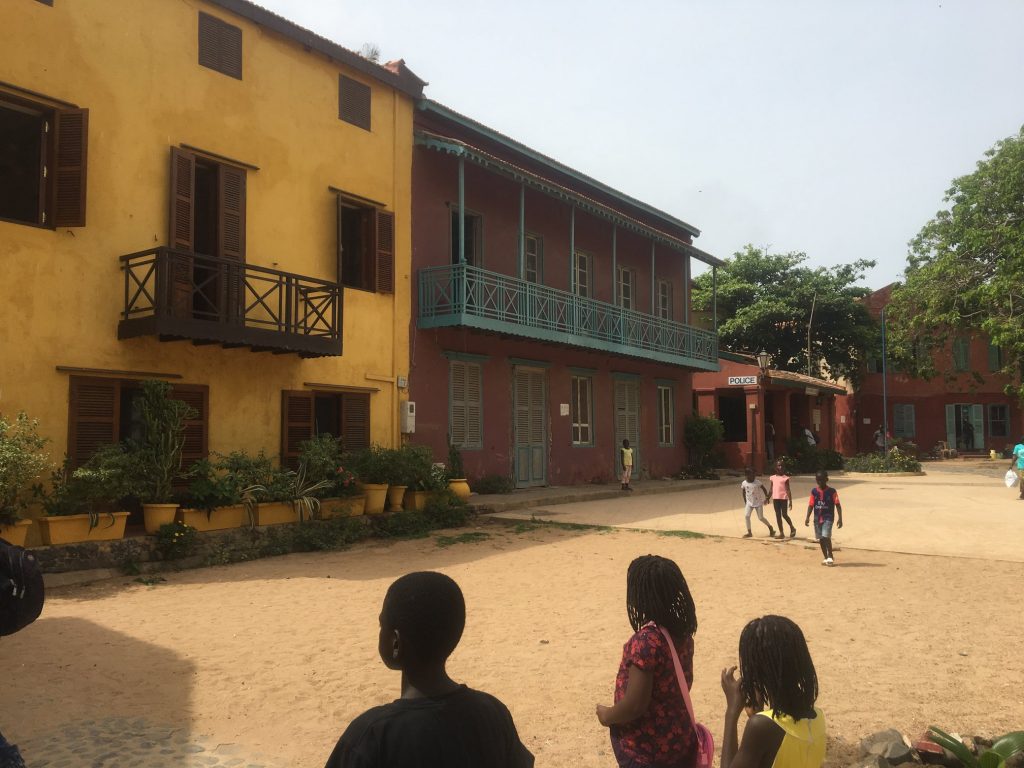
July 14th, afternoon post: A few more pictures from La Maison des Esclave (The House of Slaves) on Île de Gorée. The first two (of me silhouetted in front a door and of some others in front of the same door) were taken at what was called “La Porte de Non-Retour” (The Door of No Return). When a slave walked through that door, it was directly onto a boat and it would be the last time they set foot on African soil.
The last picture is of a tiny, windowless cell where difficult prisoners were kept as punishment. Nelson Mandela visited the island and was shown the cells. Despite protests from his hosts and his delegation, he bent down and crawled into the cell to see what it was like.
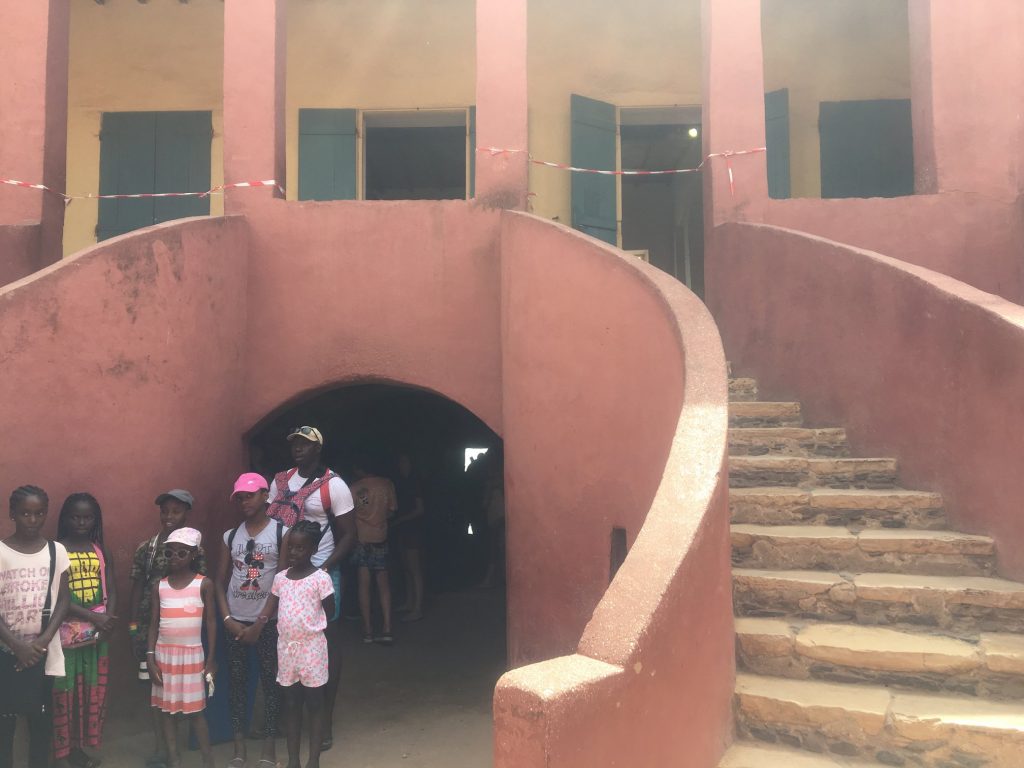


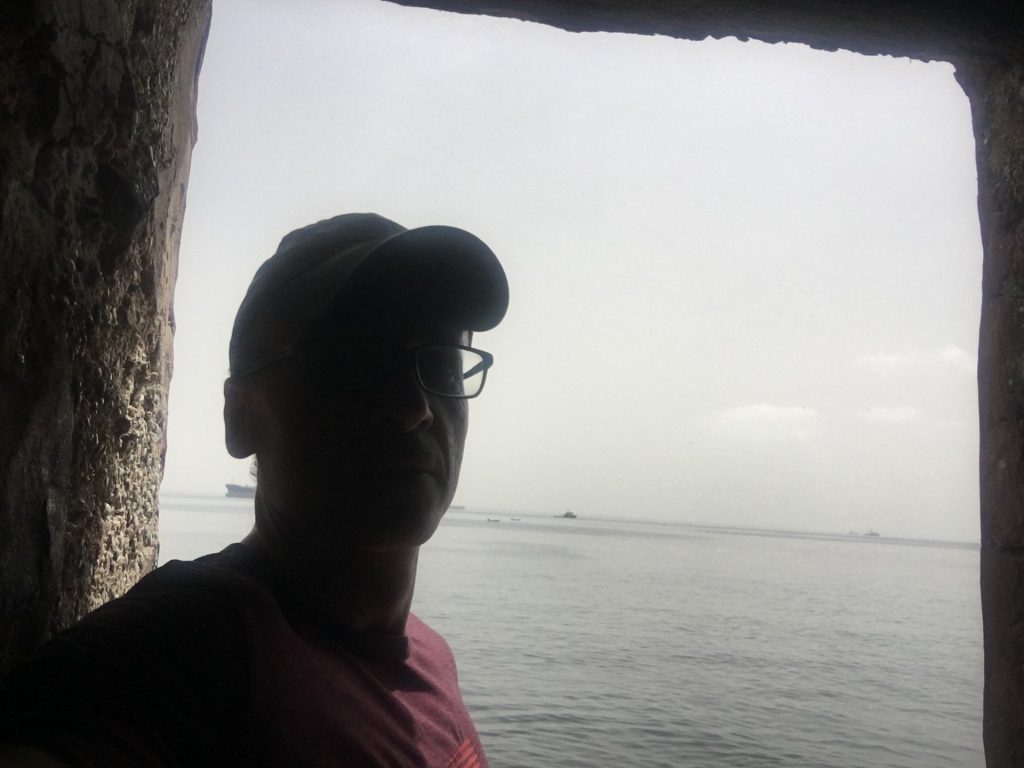
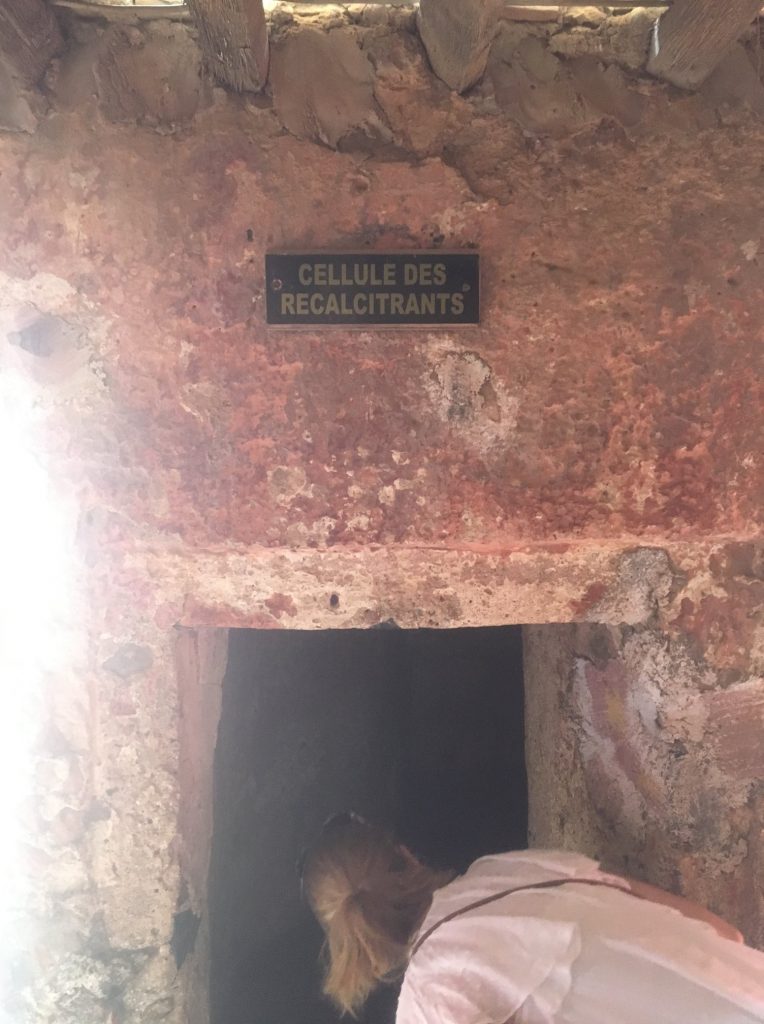
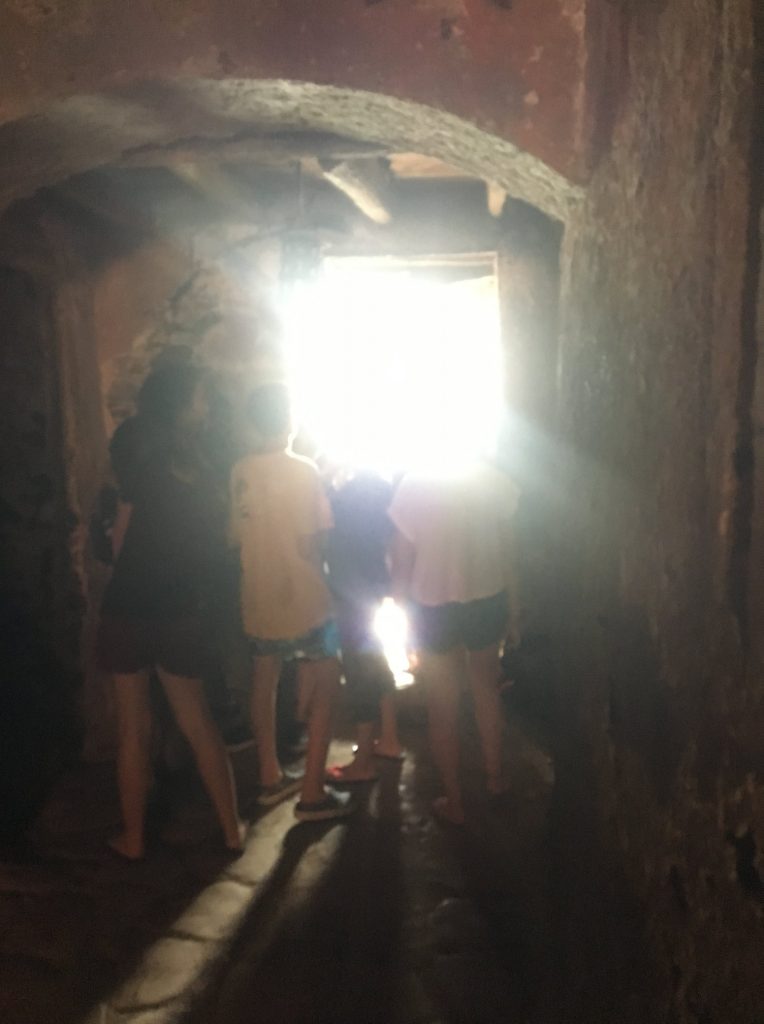
July 14th, evening post: Two final shots from Île de Gorée.
The white plaque reads: “The Senegalese people knew how to preserve the actual House of Slaves in order to remind every African that a part of himself or herself has passed through this sanctuary.”
The brown plaque reads: “If anyone tells you ‘Gorée is an island,” that person is lying. This island is not an island. It is a continent of the spirit.” (I was proud to see that these words were written by a Canadian.)
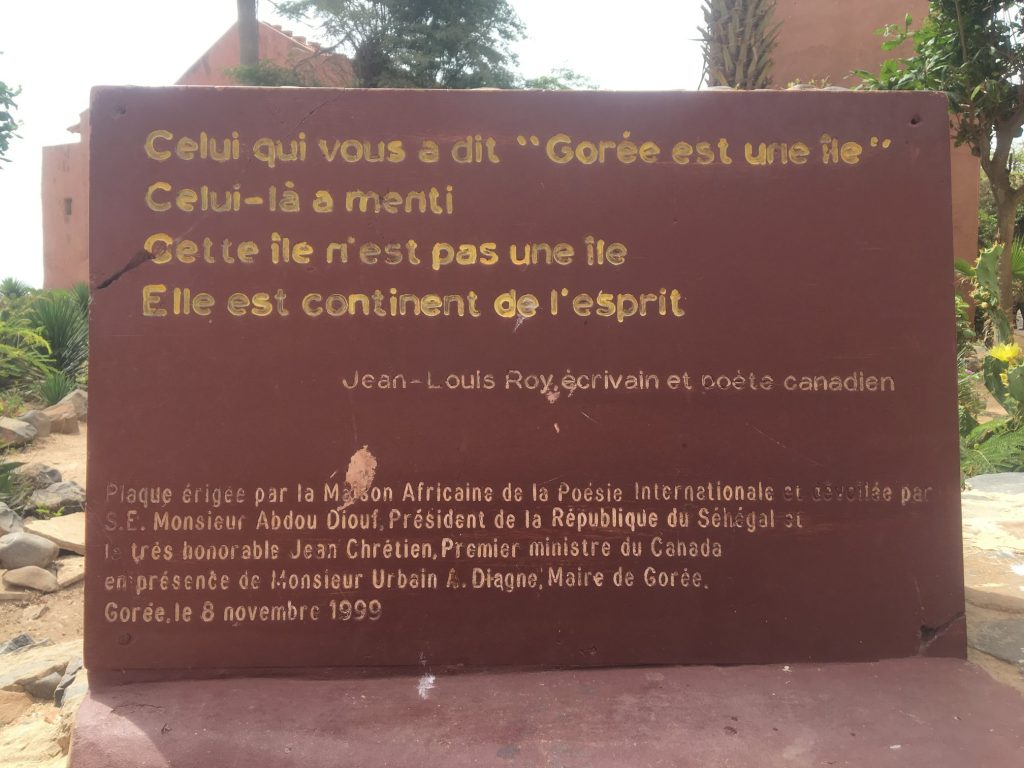

July 18th: Now back in Geneva. On my final morning in Senegal, I went for one last walk down to the ocean. I was soon joined by a dozen or so kids, all boys except for one little girl. The boys huddled around a rock and began betting small amounts on some game, the rules of which were a mystery to me.
The little girl (black sweater in the photos) stood by herself throwing rocks into the water. So I joined her and she ooed and awed as I hurled stones as far into the surf as possible. Then we drew some pictures in the sand. Communication was a challenge as she spoke little French and my Wolof was limited to about 50 words but we got along like a house on fire. Her older brother came over at one point and he spoke French, so that made things easier.
I showed Antigay (the little girl’s name, my phonetic spelling) pictures of our cat and every time, she would say oooh and then kiss the phone. She then showed me a secret handshake involving high fives, finger scissors, fist bumps and ending by pinching all fingers together, kissing them and throwing the kiss to each other. Really sweet kid. It was a great way to end my stay in Senegal.
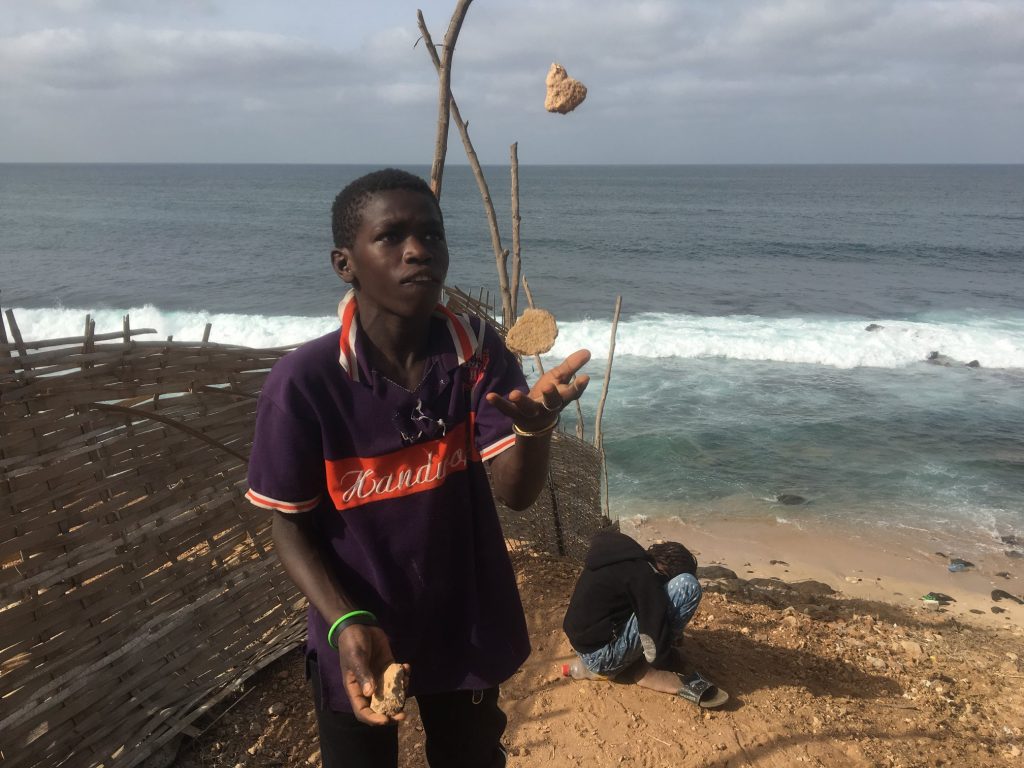
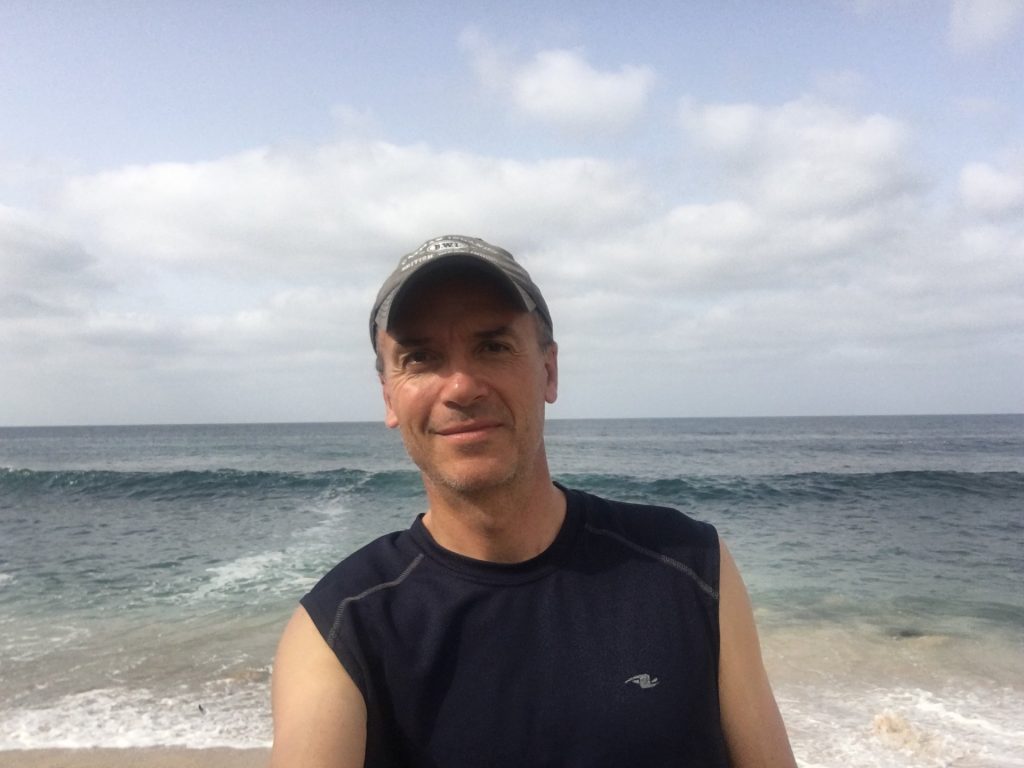
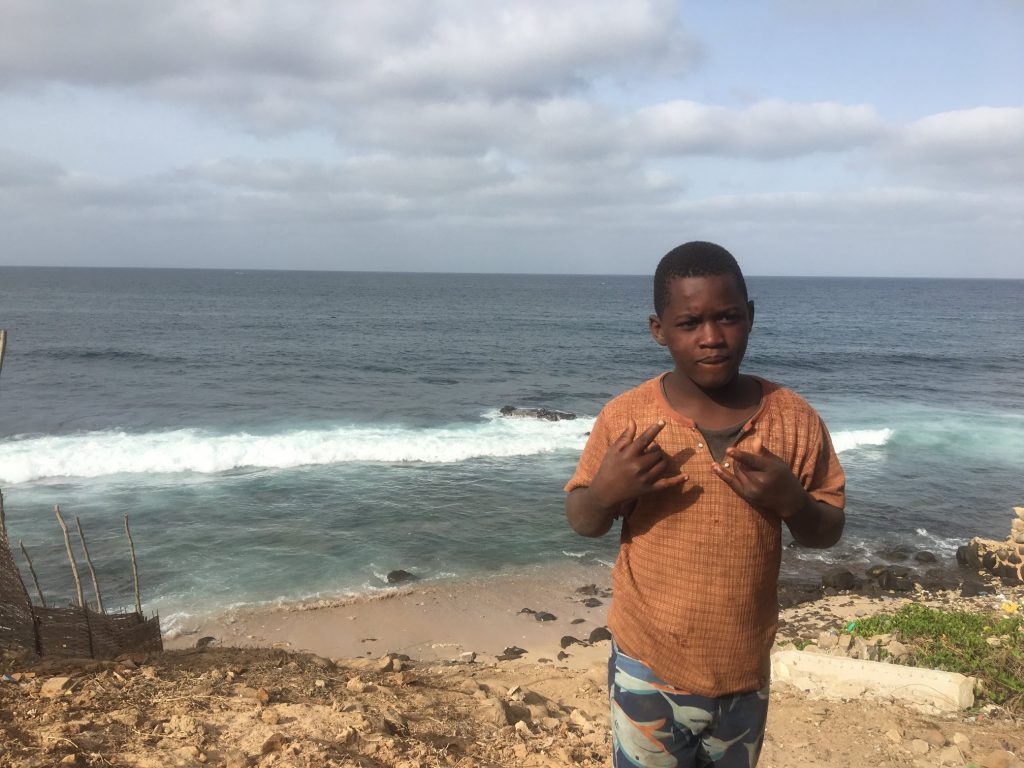
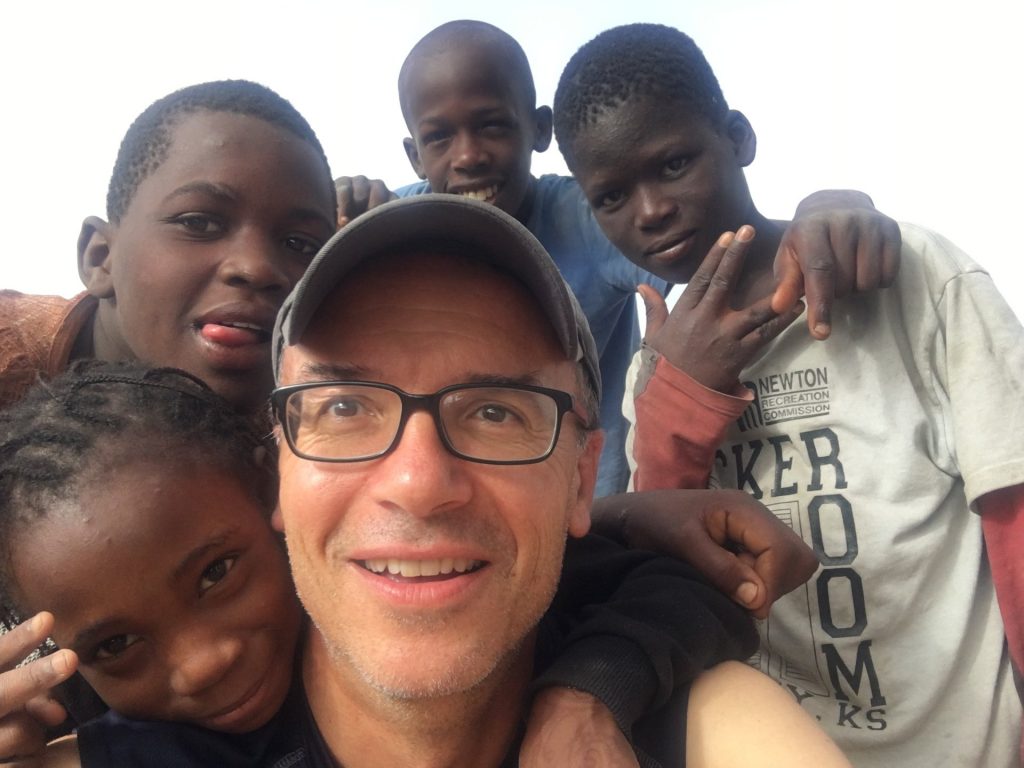
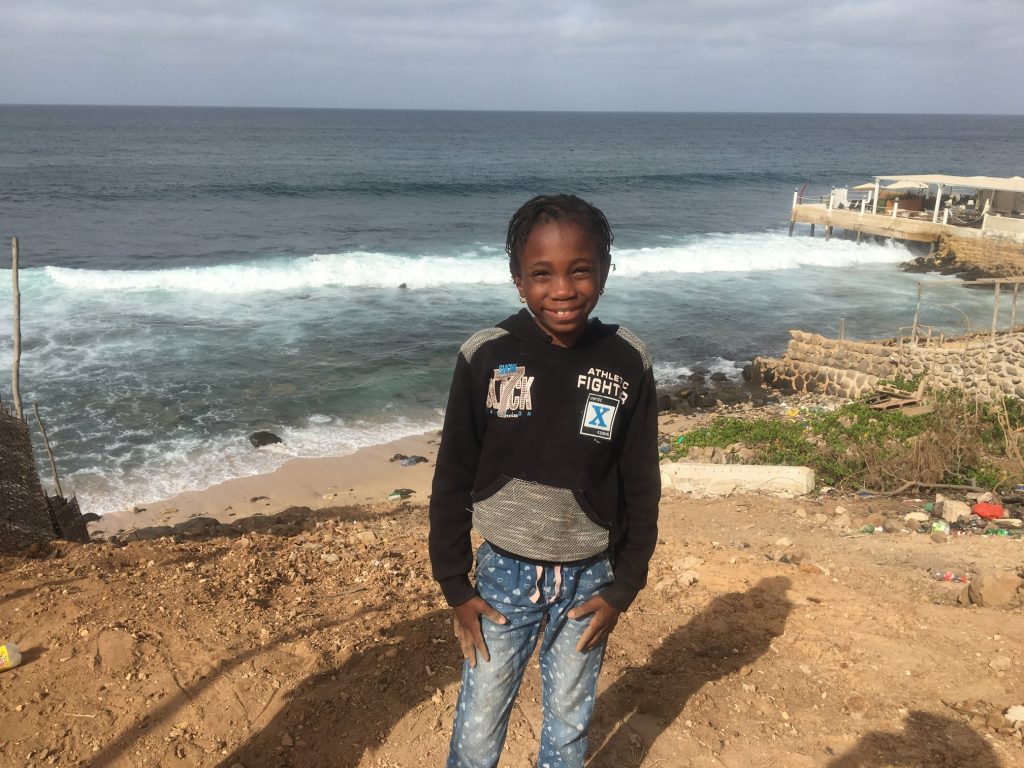


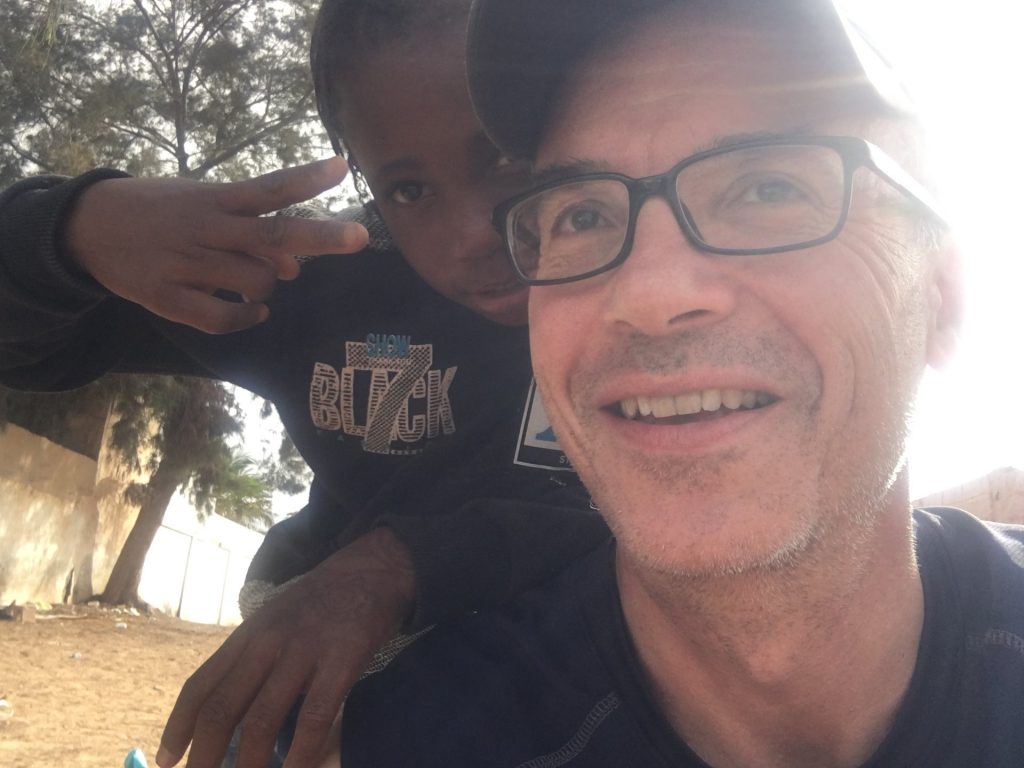
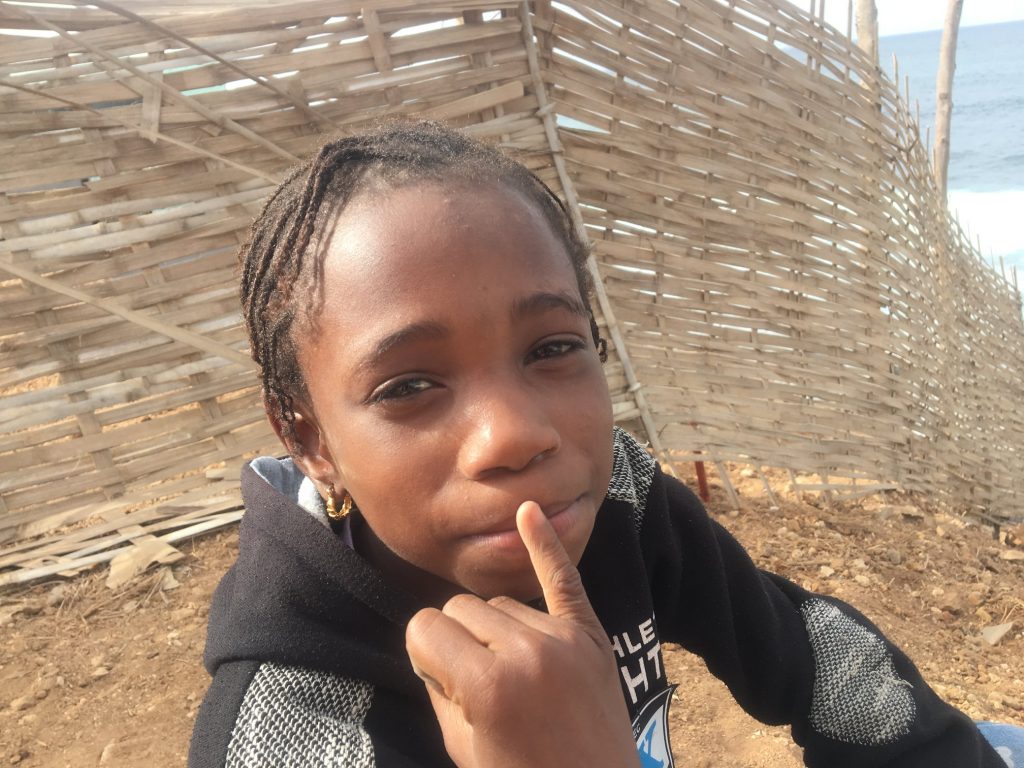
Photos and text courtesy of John Zimmer @ mannerofspeaking.org [link]
The storyteller and the experiencer
Nomunculus
Deep inside you lives an undividable soul, the real you, a core that knows what you feel and what you really want. Right?
Well, that view is a bit outdated.
As psychology advances we find that people seem to be more of a gaggle of different subsystems. You’re not a person. You’re a committee. No hidden homunculus.

Example?
It is late, but tomorrow you have a lot of work. No problem, you say. I just set the alarm clock early and eat a big chunk out of my work first thing in the morning. I can do it!
Next morning. You wake up from the alarm. Grumpy. Put it on snooze. 9 minutes later: snooze again. I do NOT feel like getting up. What was I thinking yesterday?
The storyteller and the experiencer
Let’s look at two characters in the mind of our audience that are particularly important to speakers: the storyteller and the experiencer.
Your experiencer knows only one timeframe: now. It doesn’t care about past or future, all it does is measure how things feel now. Experience! It can be elated, satisfied, sad, enamored. But whatever it feels, it’s always there. In the moment. In the now. Fully.

And then there is the storyteller. The storyteller tries to make sense of your life. We can’t just be surrounded by random input, random thoughts, random encounters. Surely there needs to be some deeper meaning, some plan, some bigger story?
So the storyteller invents one – whether it’s right or not doesn’t matter. The storyteller uses the weaving loom and ties all the threads of your life together. That tapestry is what you remember, and the strings that didn’t fit are simply lost.

While the storyteller weaves your memories, the experiencer meanwhile forgets all about the original experience. But the storyteller’s memories can make it experience again.
Who is more important?
Obviously, both are important. But imagine this choice:
You are offered a free holiday. Either:
- A week to a somewhat interesting location with somewhat interesting things to do and somewhat interesting people to meet. In other words, it’s better than nothing but far from stellar.
- The holiday of your dreams, whatever it is – that cruise to the south pole, the safari, a trip into low earth orbit, you name it.
One caveat: if you choose the second option, upon return all your memories (and photos) will be wiped, so you will have no recollection whatsoever of what you’ve experienced.
Which one do you choose?
Your audience is split as well
As a speaker you should be aware that every single member of your audience also has an experiencer and a storyteller. What does this mean for your speech? Do you cater for both? Which one should you serve first, and how?
The answer is simple.
First, your speech needs to be an experience for them. The experiencer hands the threads to the storyteller to create the memory after all. If you fail to engage it, you fail to reach your audience.
In order to be an experience you don’t need to be good. You need to be different.
And then you feed the storyteller. Indirectly, through the experiencer. You want your message to be remembered. And what does the storyteller remember best? Stories! What kind of stories do you feed it? Lively stories! Because the storyteller gets fed by the experiencer!
The storyteller’s secret
In order to get to the secret of the storyteller in your head, I will need to share a bit of a dirty story. In a study in 1996 Kahneman and Redelmeier did research on colonoscopy patients. Colonoscopy, without going into further depth (oops), is known as a quite unpleasant experience.
In one group the catheter was removed as was the norm: immediately.
In the other group catheterization lasted about twice as long, but the last minutes the experience, though still unpleasant, became somewhat less so.
Overall, the experiencer experienced more pain in the second version. However, when asked afterward, the second version was considered a lot less painful by the storyteller.
It is called the peak-end rule, and it’s the storyteller’s secret. What the storyteller remembers of what you tell is the peak and the end, the rest will likely be forgotten. That’s life.
So what does that mean for your speech or your presentation? Pay special attention to the apotheosis and to the end. Let it flow like a good story, like a fairy tale, like a movie. If you work towards a climax and have a happy ending your audience will love it…
The last laugh
As over time your speech slowly fades in the memories of the audience, your story merges into their own stories. Funny enough, there is one thing that lasts: the memory of the experience.
As Maya Angelou put it so nicely:
I’ve learned that people will forget what you said, people will forget what you did, but people will never forget how you made them feel.
post courtesy of Peter Zinn @ speakfreak.eu [link to original post]
Interview with Olivia Schofield at Codemotion
John Zimmer’s video from Dakar, Senegal
Having a busy life?
Let them know!
Florian Mueck: Video on the Curse of Knowledge
fmquicktip #66 #cok #publicspeaking #charisma



